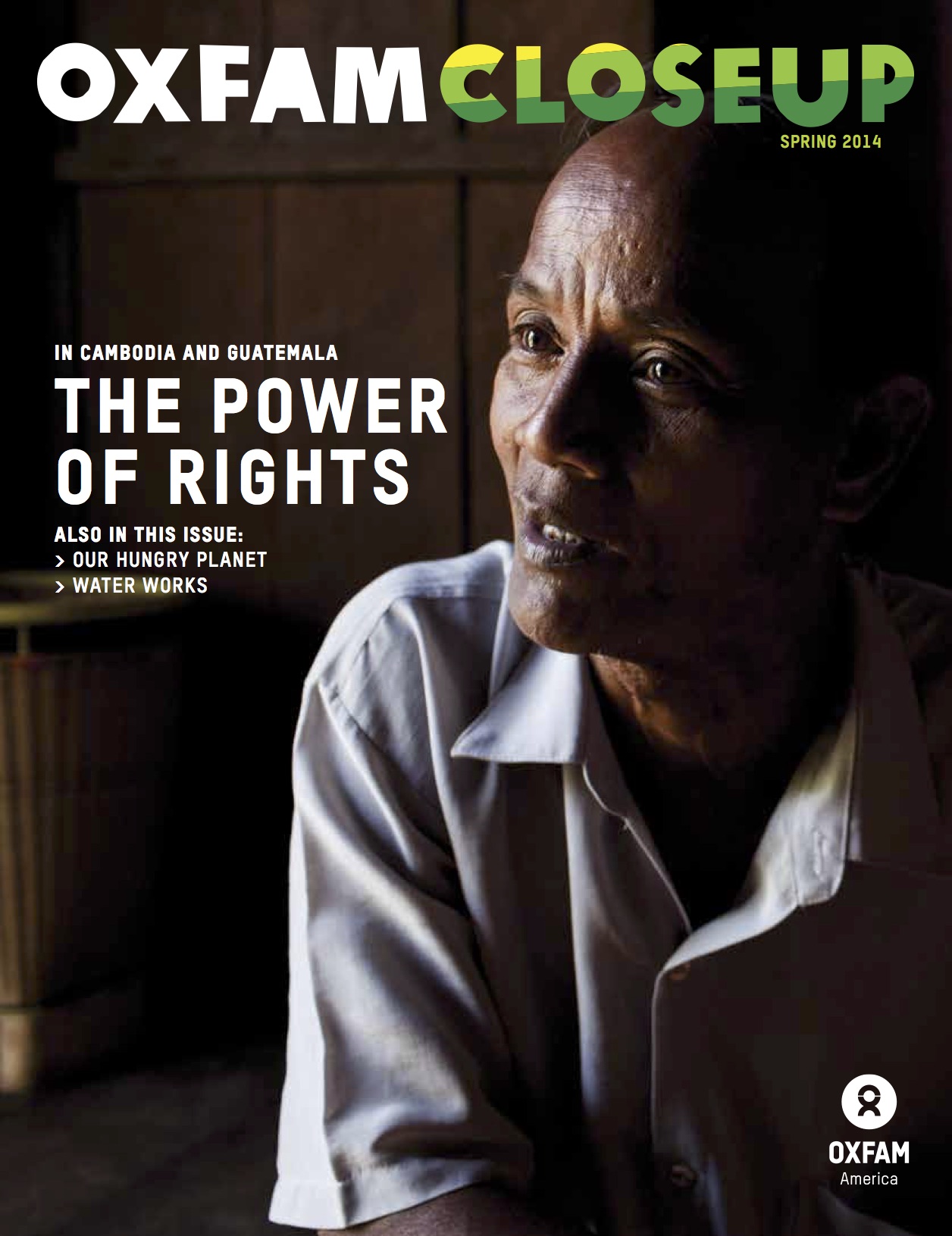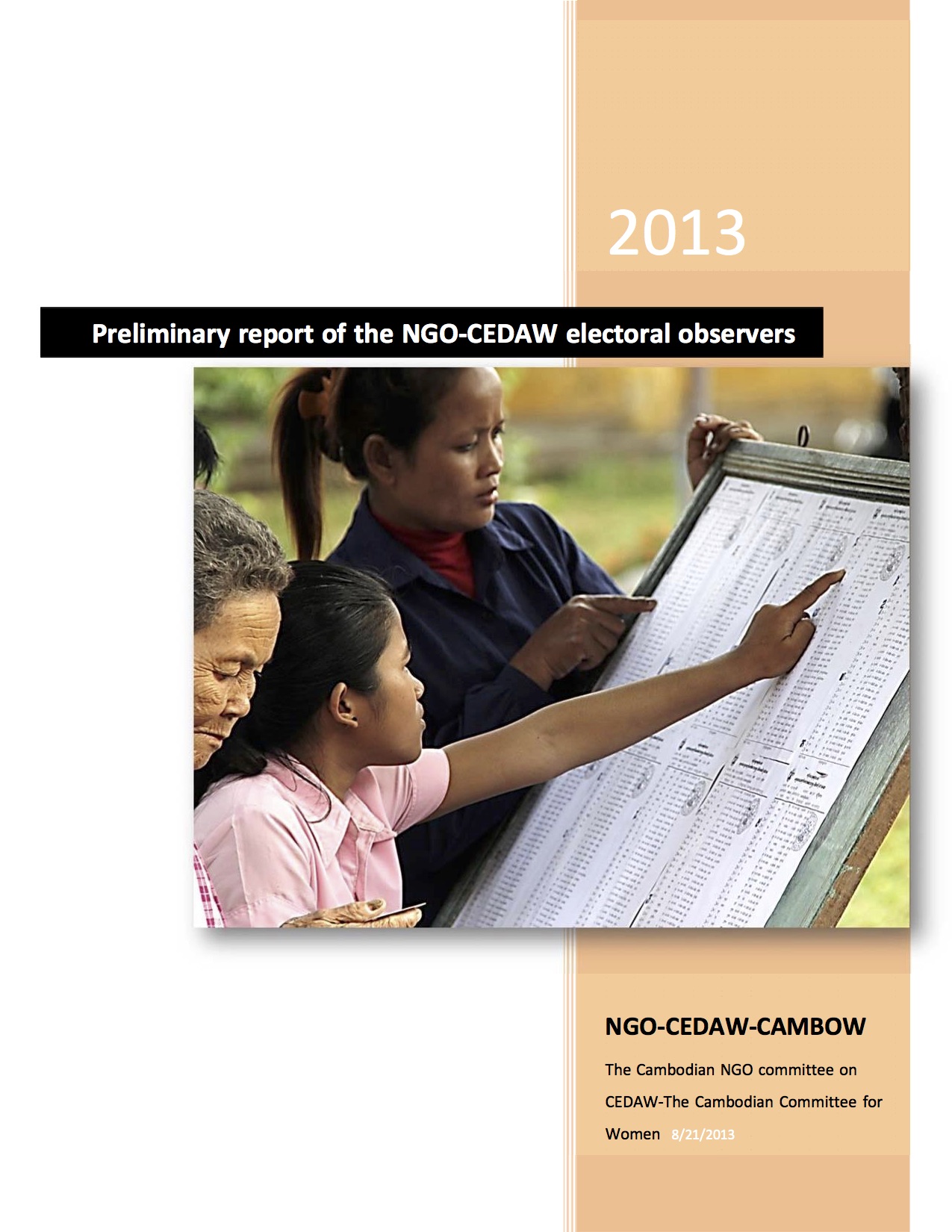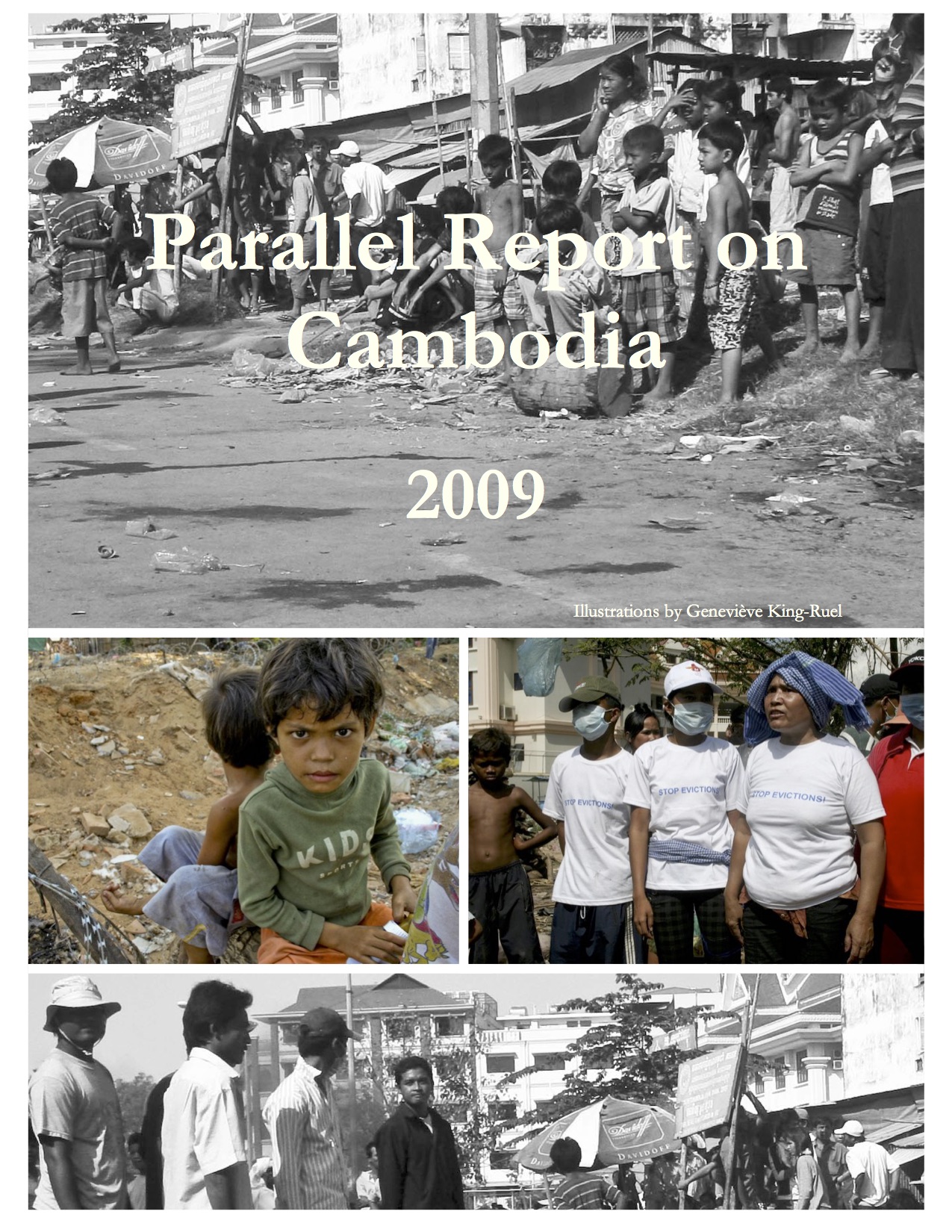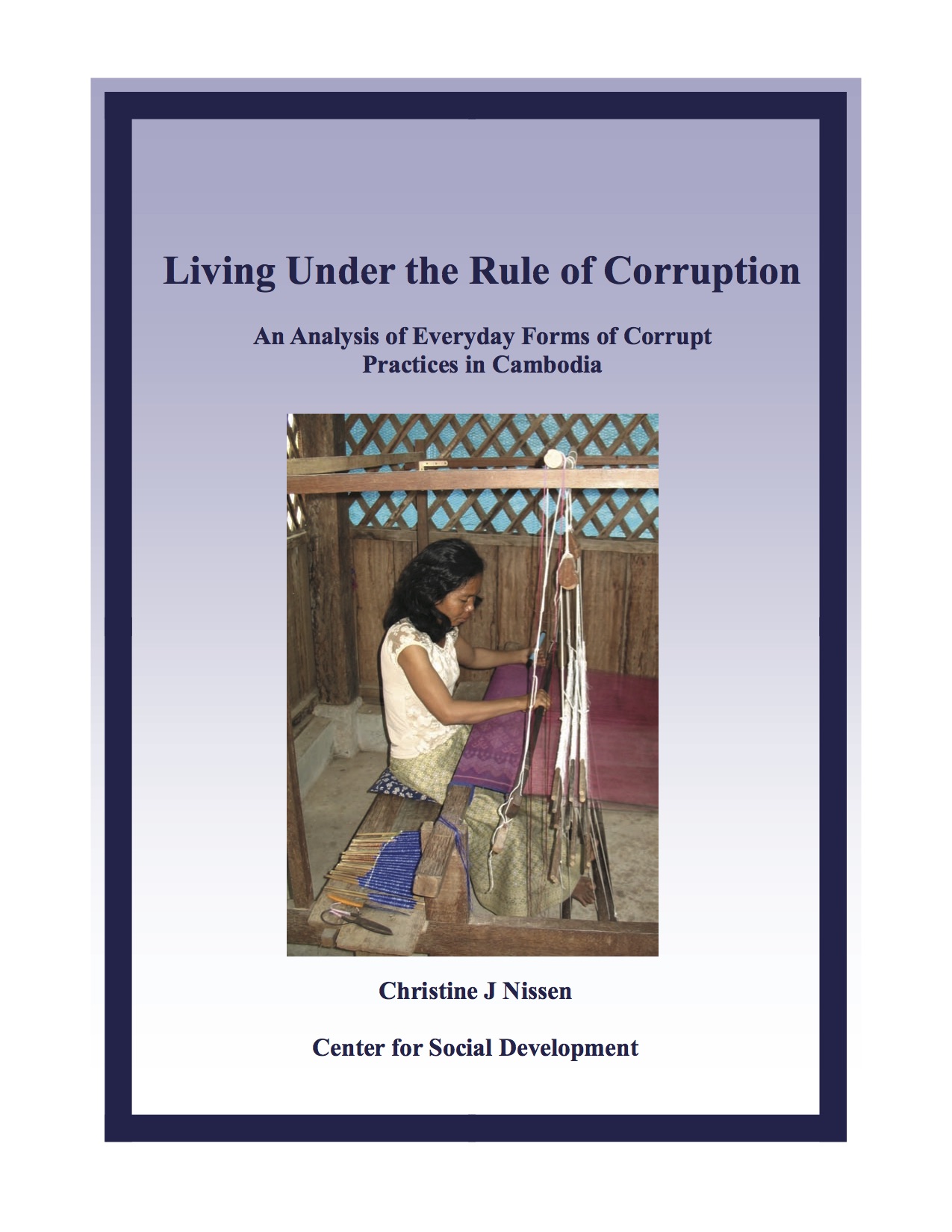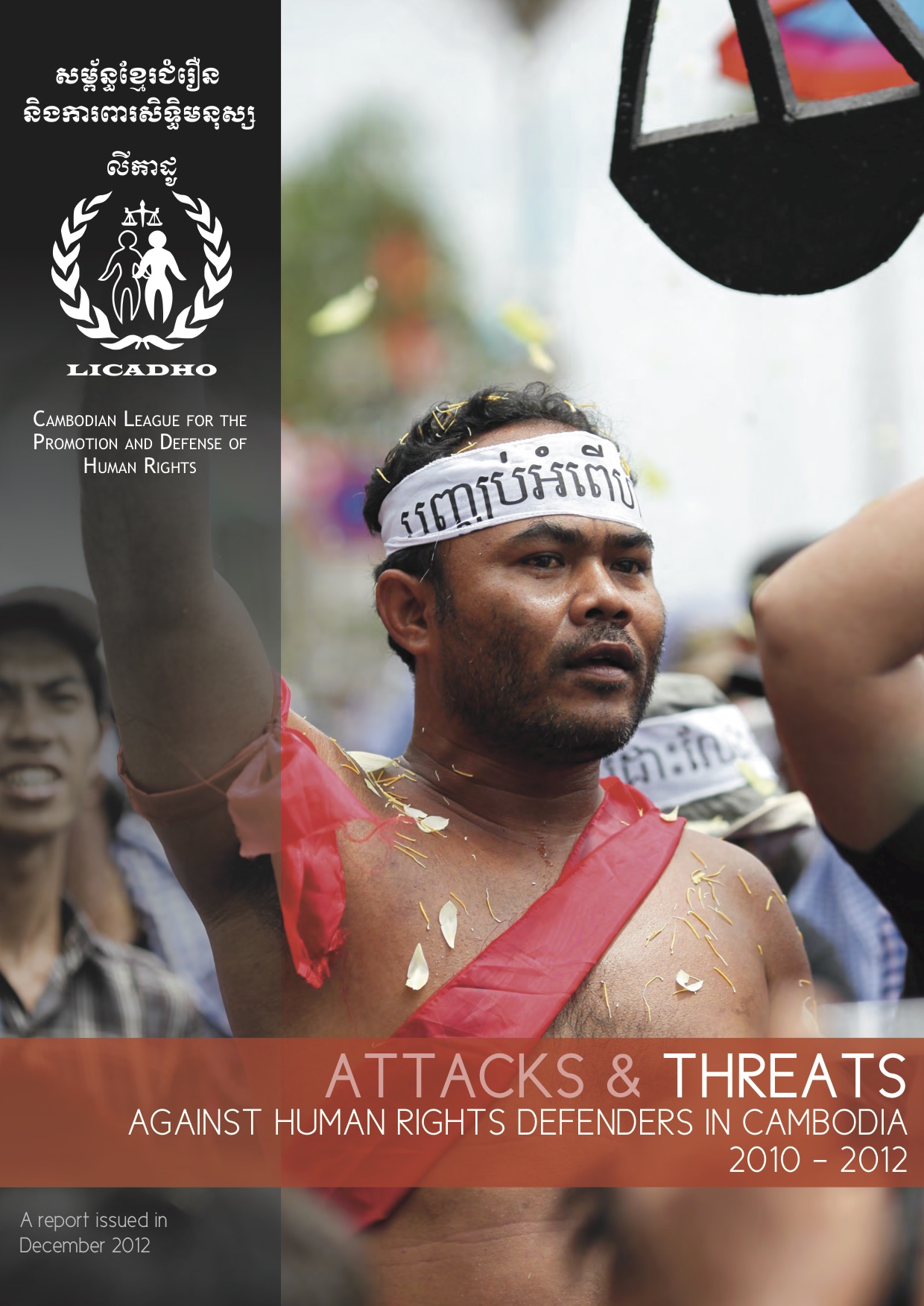Latest Entries
In Cambodia and Guatemala The Power of Rights
Publication Year: 2014 / Sources: OXFAMIn the pages ahead, you’ll read about indigenous people in Cambodia’s Ratanakiri province who, for thousands of years, have enjoyed the bounty from land they hold in common. They fish, hunt, forage, and farm on it, ensuring their families will have both food and income. But there is now enormous pressure on those families to claim title to a small area of their common land, and then sell it to developers who are hungry to establish rubber plantations and gold mines. In the end—when their money from the sale is gone—Ratanakiri’s indigenous people are left with nothing. Poverty replaces their rights to that communal property.
Preliminary report of the NGO‐CEDAW electoral observers
Publication Year: 2013 / Sources: The Cambodian Committee for Women (CEDAW)The Cambodian NGO committee on CEDAW (NGO‐CEDAW) was established in 1995 with the support of the Cambodian Office of UN High Commissioner for Human Rights (COHCHR). It was originally composed of nine Cambodian NGOs. The membership is now 90 members NGOs. Its principal mission is to monitor and provide an independent report on the progress implementation of CEDAW in Cambodia. As a coalition of women oriented organization, activities of NGO‐CEDAW members cover most sectors of activity and of society. NGO‐CEDAW members are directly interested in the electoral process and have been instrumental in providing their support to send election observers.
Parallel Report on Cambodia 2009
Publication Year: 2009 / Sources: United Nations Committee on Economic, Social and Cultural RightsThis report is a useful and important contribution by civil society organizations which provides members of the Committee information on key areas of concern which they should explore during their dialogue with Government of Cambodia. The report should also be useful for Committee as it pushes the Government of Cambodia to enhance the implementation of the ESCR. We, as civil society organizations, will continue to monitor closely and collaborate with our government to promote the ESCR after this dialogue and continue to encourage it to fulfill its obligation, as a state member of the Covenant, to submit periodic reports to the Committee in the future.
Living Under the Rule of Corruption
Publication Year: 2005 / Sources: Center for Social DevelopmentThis report is the qualitative component of this research project which focuses on local-level corrupt practices. It mirrors the families and household’s concrete experiences with corrupt practices, the effects these practices have on their lives, and their ways and strategies of coping with corruption.
Attacks & Threats Against Human Rights Defenders in Cambodia 2010-2012
Publication Year: 2012 / Sources: LICADHOThis report is by no means a comprehensive examination of all of the attacks and threats against human rights defenders in Cambodia between 2010 and 2012, as many instances go unreported. Instead the report aims to provide a concise overview of the human rights abuses that LICADHO observed and investigated during that time. It also serves as a reference tool to address the attacks and threats against human rights defenders, and raise awareness about the state of human rights in Cambodia since 2010.

